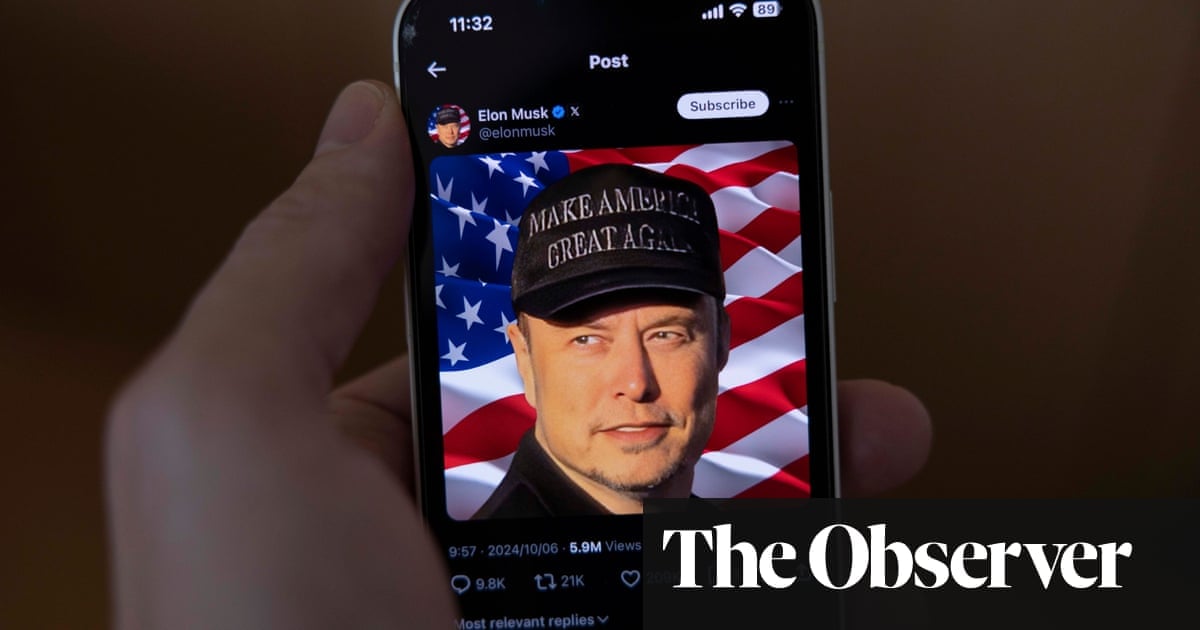The platform’s billionaire owner has seen its value plunge as advertisers run shy, revenues drop and user numbers fall
Two years ago, there was some trepidation among advertisers, anti-hate-speech groups and staff about Elon Musk’s acquisition of Twitter.
Those concerns have been borne out: advertisers have sharply reduced spending on the platform, Musk has sued nonprofits over their coverage of a rise in controversial content and about eight out of 10 employees have been sacked.
The service, now rebranded as X, is not worth the $44bn Musk paid for it on 27 October 2022 – later tweeting “the bird is freed” in a reference to its corporate logo. The plunge in value reflects the damage done to its advertising-dependent business model.
But its continued influence as a news source and its role as an outlet for broadcasting its owner’s rightwing views to his 200 million-plus followers, means the benefit to the world’s richest person does not need to be measured in financial benchmarks alone.



It makes no sense because most of Twitter’s business is outside the US - even if Trump wins, which would be indicative of of a majority of American voters chosing him (maybe not even that given how the US voting system works), that would still only strengthen Nazi-bar Twitter amongst about 100 million people and do very little about the rest, plus those 100 million not being in average the very educated or afluent probably means that it wouldn’t attract most of the biggest and higher spending advertisers.
In other words, strengthening it’s Nazi-bar nature isn’t exactly a strategically sound thing for a business that tries to cater for a large proportion of the people online all over the World and then make money by selling access to them to advertisers.
Also, as we seen with Truth Social, targetting the MAGA crowd can’t really sustain a big online business even with the endorsment of the MAGA-in-chief.
Bloody Grammar Nazis coming over here and correcting my writtings about Nazi bars … ;)